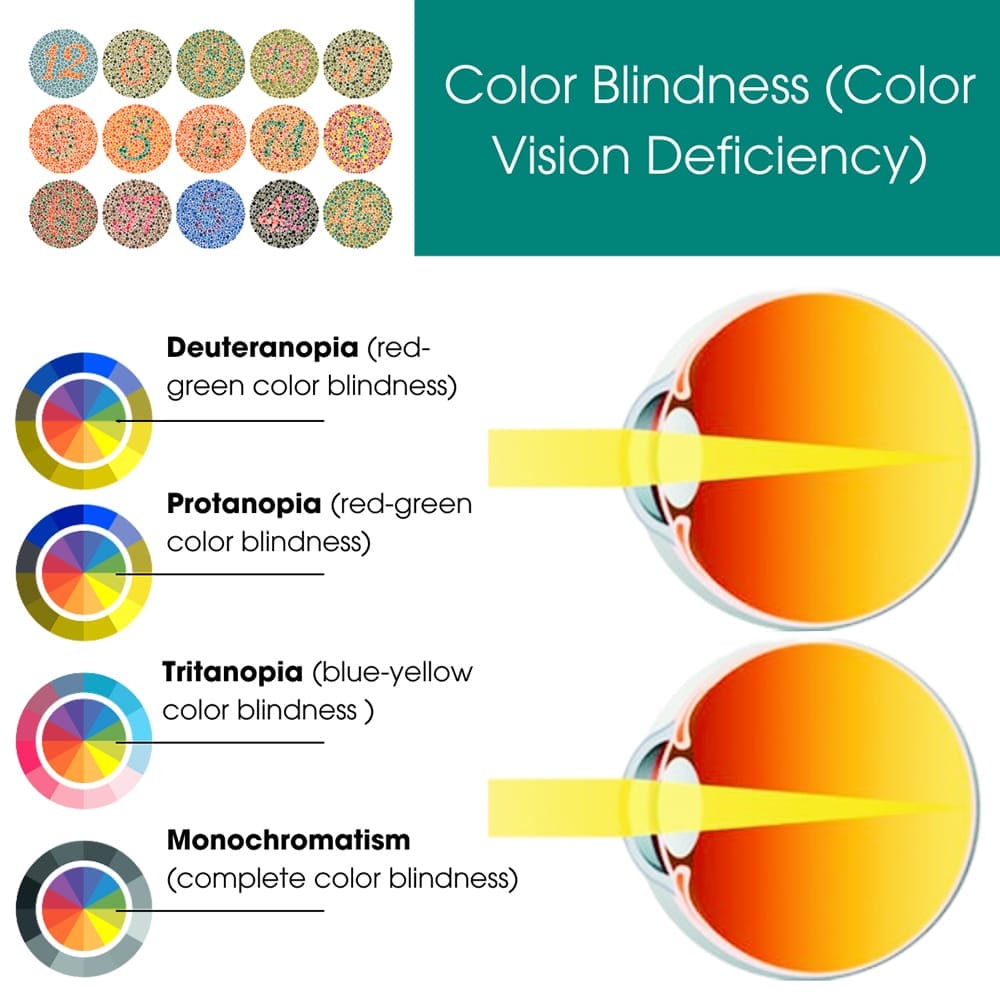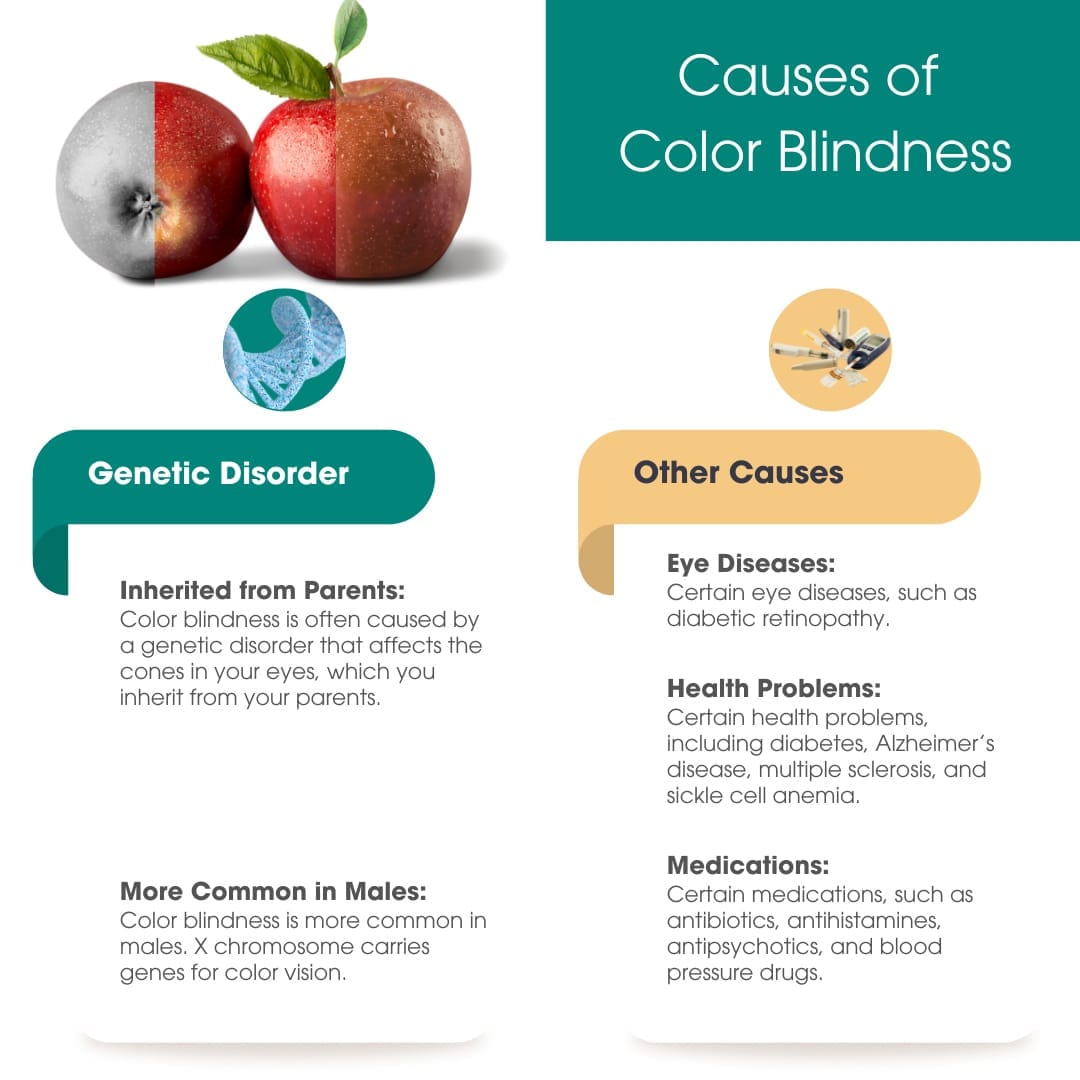Color blindness, or color vision deficiency, is a condition that affects how you see colors. It makes it hard to tell the difference between certain shades of red, green, blue or yellow. Color blindness can be inherited or caused by eye diseases, health problems or certain medications. It can affect your daily activities, such as reading, driving or choosing what clothes to wear. If you have color blindness, you may need special glasses, contact lenses or other visual aids to help you see colors better.
Find the best color blind doctor at Eye Physicians in New York. They have a team of experienced and caring optometrists and eye doctors who provide accurate diagnoses and offer treatments for color blindness to alleviate your color vision deficiency. They offer a variety of treatments for visual disorders and most other eye diseases. You get the latest visual technology and medical advances to provide you with the best color blindness treatment possible.

There are different types of color blindness, depending on which cones in your eyes aren’t working properly. The rarest type of color blindness is monochromacy. This type makes it impossible to see any colors at all. People with rod monochromacy see only black, white and shades of gray, while people with cone monochromacy see only one color such as red, green or blue.
You may have difficulty in distinguishing blue and yellow hues if you have blue-yellow color blindness. With tritanomaly, blue appears more green and less bright, while with tritanopia blue appears as pink or gray. If you have red-green color blindness, it’s hard to tell the difference between red and green hues.
Four subtypes of red-green color blindness include:
The most common cause of color blindness is a genetic disorder that affects the cones in your eyes. This means you inherit the condition from your parents, and it’s present from birth. Color blindness is more common in males than females because the genes that cause it are located on the X chromosome.
If a male inherits a defective X chromosome from his mother, he will have color blindness. If a female inherits a defective X chromosome from either parent, she will be a carrier, but she may not have color blindness herself.
Other causes of color blindness include:

The most telling symptom of color blindness is not seeing colors the way most people do. A person with color blindness can’t clearly distinguish color types, brightness and hues. And you may not even realize it until you talk to other people about colors for some reason.
Others with color blindness may not notice their condition until they encounter a situation where color discrimination is important, such as reading a traffic light or a color-coded map. Some may have mild symptoms that they can adapt to or ignore.
However, some people with color blindness may have more severe symptoms, such as:
Unfortunately, there is no cure for inherited color blindness, and no medical treatments currently exist for some forms of the condition. However, there are some ways to cope with color vision deficiency and improve your perception of colors.
Eye Physicians in New York can help you find the best solution for your specific type and degree of color vision deficiency. They can also provide you with a color-blind test in Downtown Manhattan.
Some of the color blindness treatment options for color blindness include:
If you have color blindness or other vision problems, choose a clinic that offers the latest technologies and treatments to improve your eye health and quality of life. You need a color blind specialist with extensive skills and experience.
Color blindness can make you feel frustrated, isolated or insecure. However, you don’t have to let color blindness limit your potential. There are solutions that can help you cope with color vision deficiency and improve your perception of colors.
Contact Eye Physicians in New York for an appointment with a color blind doctor, specializing in treating all forms of the visual disorder. Their qualified eye doctors diagnose and treat various eye conditions using advanced methods and equipment.
Some of the treatments in addition to treatment for color blindness include:
Color blindness can impact daily life, but it is manageable with the right care. At Eye Physicians, our team of the best ophthalmologists in NYC offers advanced diagnostics and personalized treatments to help you see the world more clearly.
Eye Physicians
110 Lafayette St, Suite 503
New York, NY 10013
(212) 292-4814
Entrust the care of your precious eyesight to highly skilled and experienced eye care professionals. For top-notch ophthalmologists and optometrists in Downtown Manhattan, choose Eye Physicians. Eye Physicians ensures prompt care, precise diagnosis, and personalized treatment plans.
Schedule an Appointment